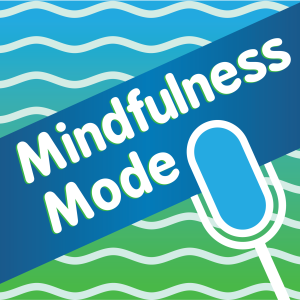
Dr. Stuart Hameroff is Professor Emeritus of Anesthesiology and Psychology, Director of the Center for Consciousness Studies at the University of Arizona. Dr. Stuart Hameroff was the lead organizer of the first Science of Consciousness Conference and is still a co-chair of the 24-year-old annual conference. He is best known for developing the Orchestrated objective reduction (Orch-OR) Theory along with Dr. Roger Penrose, which observes: “consciousness is rippling vibrations in the structure of the universe. These vibrations resonate from the microscale, where quantum physics operates, to the macroscale of the brain.
Listen & Subscribe on: iTunes / Stitcher / Podbean / Overcast / Spreaker / Spotify Contact Info- Website: www.consciousness.arizona.edu/
- The Science of Consciousness Conference: https://www.tsc2019-interlaken.ch/
- Roger Penrose, one of the world's leading physicists and author of The Emperor's New Mind
- I can get emotional and I've tried, especially in recent years to be mindful and not fly off the handle. Not that I had a big temper, but, especially in medicine and anesthesia, you tend to get stressed out and we have critical situations all the time.
- What I found over the years is that when you're in a critical situation, you know, a trauma victim comes in, a stabbing, shooting, whatever, and we have precious few minutes to get the patient stabilized from the emergency room to the operating room and get surgery going and get lines in and get airway, et cetera. I just do that and I'm pretty efficient. I've been doing it a long time.
- Then later that evening I go home and I start thinking about it and then I get shook up because, you know, that guy could have died. Fortunately, they didn't, we saved them. But when you think of all the decisions along the way that you make, and what could have gone wrong; what I do is, I act in the moment and take care of things and then kind of worry about it later.
- Well, of course breathing in anesthesia is key. That's our main [objective], we establish the airway and breathing for the patient. As far as my breathing, when I do get stressed, I take some deep breaths. It's interesting what that actually does outside of provide oxygen. It changes the Ph in your brain because if you hyperventilate or breathe deeply and intensely more than normal, you're going to get rid of carbon dioxide and that makes your blood and your brain more alkalotic and gets rid of acid. And when that happens, it does a lot of things. The microtubials extend their c Termina, these little projections out and it opens gap junctions between neurons so that more neurons get connected. So I wonder, I've often wondered whether that that's the mechanism by which altered states occur for meditation, a breathing meditation by opening gap junctions and including more neurons in one quantum state and that would tend to expand consciousness.
- Book: The Emperor's New Mind: Concerning Computers, Minds, and the Laws of Physics by Roger Penrose
- App: n/a
- Well, when I was a kid, I was in third grade, maybe fourth grade. I went to the store for my mom and I was coming back walking, carrying a bag of groceries and the local gang of bullies came up upon me and started grabbing stuff out of my shopping bag I was carrying.
- I didn't exert mindfulness. Instead I just reared back to punch the guy in the mouth and he literally fell back. He was surprised because he was bigger than I was and he had three or four friends and I was expecting to get the crap beaten out of me right then and there.
- But they just kind of looked at me and left. So I, that's probably not the answer you were looking for, but sometimes you have to stick up for yourself.
- Bullying in medicine and academic medicine, particularly where you have professors and clinicians with the residents and medical students; there has been problems with bullying, you know, berating and embarrassing students and residents and people in medicine. It's become an issue and we're counseled.
- I myself don't do that. I tend to be on the side of the little guy I would say. Even though I'm a clinician, I'm a professor, a faculty attending.
- It's become much, much less of a problem because of this. It doesn't look good. It's not good for anybody. So I'd say to its credit, modern medicine has taken this issue seriously and it's not a problem as it once was.
Get the brand new Awaken With Focus 12-Minute Guided Meditation by Bruce Langford
Be alert and focused after waking. Feel invigorated, fresh and dynamic. Let your vibrancy feed those around you. Be the energetic person you desire to be. Click here: www.MindfulnessMode.com/AwakenWithFocus
More Episodes
 2024-05-13
2024-05-13
 630
630
 2024-05-09
2024-05-09
 670
670
 2024-05-06
2024-05-06
 627
627
 2024-05-02
2024-05-02
 724
724
 2024-04-29
2024-04-29
 632
632
 2024-04-25
2024-04-25
 688
688
 2024-04-22
2024-04-22
 664
664
 2024-04-18
2024-04-18
 722
722
 2024-04-15
2024-04-15
 672
672
 2024-04-11
2024-04-11
 654
654
 2024-04-08
2024-04-08
 668
668
 2024-04-04
2024-04-04
 759
759
 2024-04-01
2024-04-01
 783
783
 2024-03-28
2024-03-28
 774
774
 2024-03-25
2024-03-25
 692
692
 2024-03-21
2024-03-21
 783
783
 2024-03-18
2024-03-18
 802
802
 2024-03-14
2024-03-14
 675
675
 2024-03-11
2024-03-11
 752
752
 2024-03-07
2024-03-07
 750
750
Create your
podcast in
minutes
- Full-featured podcast site
- Unlimited storage and bandwidth
- Comprehensive podcast stats
- Distribute to Apple Podcasts, Spotify, and more
- Make money with your podcast
It is Free
- Privacy Policy
- Cookie Policy
- Terms of Use
- Consent Preferences
- Copyright © 2015-2024 Podbean.com



